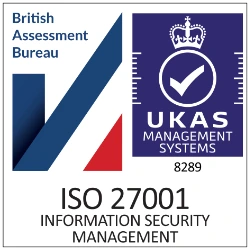
Enhancing efficiency for complex real estate financing

Enhancing efficiency for complex real estate financing
By Deion Fox and Alan Joyce
Recessionary pressures have contributed to an increased level of distress for some businesses and risk-averse traditional lenders, which has prompted shifts in real estate financing. Across the property market, there are heightened concerns due to greater volatility in property values as well as the uncertainty of receivables.
Recessionary pressures have contributed to an increased level of distress for some businesses and risk-averse traditional lenders, which has prompted shifts in real estate financing. Across the property market, there are heightened concerns due to greater volatility in property values as well as the uncertainty of receivables.
Given the uncertain state of the credit market, banks are also more apprehensive about lending to new clients, which has resulted in more comprehensive security packages and, in particular, pledges of real assets and land. This trend is not exclusive to the UK market, and it is becoming more prevalent throughout Europe in countries such as Germany, the Netherlands, Italy, Spain and Hungary. As concern about the credit market mounts, lenders are increasingly exploring other avenues to improve visibility and monitoring of underlying assets and cash flows rather than relying solely on longer-term periodic reporting.
The administrative burden of transactions involving real estate
Achieving enhanced reporting and visibility over assets can prove to be extremely time consuming, particularly in more complex transactions or restructurings where there are more assets to monitor on behalf of a greater number of lenders. In more contentious or adverse credits, increased focus is also placed upon cash flows related to the asset, often with heavy cash management and complicated waterfall arrangements. Lenders may also have a different ranking of security interest, such as those over lease receivables or contract rights. Some institutions do not have the expertise or resources required to effectively administer such transactions, so they increasingly look to external service providers to assist.
The power of an agent
An independent provider of loan agent services is well positioned to address those needs. A specialist agent can add efficiencies in many different ways. Designated specialist transaction managers can oversee the process and undertake an enhanced level of diligence to ensure cash is received and applied appropriately in accordance with strict documentary parameters. They can proactively work with the various stakeholders as a responsive third party to guide practical ways for administering those transactions in the most efficient way.
An independent agent can add significant value through technological innovations as well, such as by building online portals that provide real-time information and facilitate payments, which adds greater transparency and efficiency to the process. Through a depth of experience in transactions involving real estate, an independent agent can advise about the most expedient and effective avenues to follow.
GLAS specialises in a range of applicable loan administration services, including Facility Agent, Security Agent, Calculation Agent, Cash Manager, Registrar and more.
Contact GLAS
To discuss leveraging GLAS for transactions involving real estate, please contact:
GLAS EMEA
GLAS US
GLAS AU















